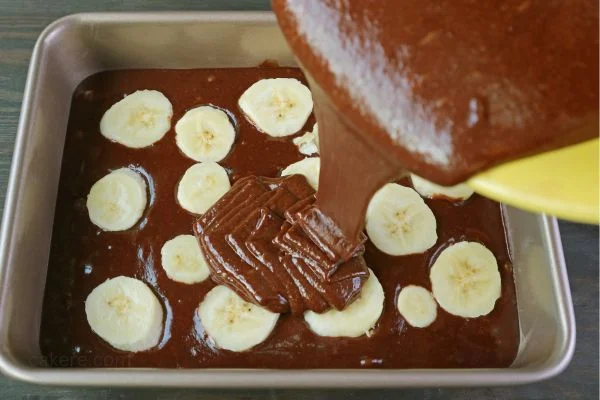The joy of baking a delicious cake can be dampened by time constraints or unexpected events that force us to delay baking. In such situations, you might wonder if freezing the unbaked cake batter is a viable option. Freezing cake batter can be a convenient solution, but it requires proper preparation and storage techniques to ensure the end result is just as delightful as a freshly made cake.

Why Freeze Unbaked Cake Batter?
Freezing unbaked cake batter offers several advantages, making it a practical choice for many home bakers:
- Time-Saving: Preparing cake batter can be time-consuming. By freezing the batter in advance, you can have it readily available whenever you want to bake a cake, reducing preparation time.
- Preservation of Freshness: Freezing cake batter locks in its freshness, ensuring that the final product tastes just as delicious as a freshly made one.
- Reducing Food Waste: If you have excess cake batter, freezing it allows you to save it for later use instead of discarding it.
How to Prepare Cake Batter for Freezing
Before freezing cake batter, it’s essential to follow the right steps to maintain its quality during the freezing process. Here’s how to do it:
Choosing the Right Recipe
Not all cake recipes are suitable for freezing. Stick to recipes that yield cakes with good texture and moisture even after freezing.
Mixing the Ingredients
Carefully measure and mix all the ingredients according to the recipe. Ensure that the batter is well combined without overmixing, as it can affect the final texture.
Preparing the Container
Select a freezer-safe, airtight container that’s slightly larger than the volume of the cake batter to allow for expansion during freezing.
Freezing the Cake Batter
Once you’ve prepared the cake batter, follow these steps to freeze it properly:
Portioning the Batter
Divide the cake batter into single-use portions. This way, you can thaw only the amount you need for a particular occasion.
Using Proper Wrapping
For added protection against freezer burn and to prevent any off-flavors from seeping in, wrap the container with plastic wrap or aluminum foil before sealing it with the lid.
Labeling and Dating
Always label the container with the type of cake batter and the date it was prepared. This helps you keep track of the batter’s freshness and ensures you use it within a reasonable timeframe.
Thawing and Baking Frozen Cake Batter
When you’re ready to bake the frozen cake batter, follow these steps:
- Thawing: Remove the container from the freezer and let it thaw in the refrigerator overnight.
- Bringing to Room Temperature: Take the batter out of the refrigerator and allow it to come to room temperature before baking. This ensures even baking and a consistent texture.
- Preheating: Preheat your oven according to the recipe instructions.
- Baking: Pour the thawed cake batter into the prepared cake pan and bake it following the original recipe’s instructions.
Tips for Freezing Cake Batter
To make the most of freezing cake batter, consider these helpful tips:
Choosing the Right Container
Opt for containers that are specifically designed for freezing. They should be airtight and leak-proof to maintain the batter’s freshness.
Freezing Different Types of Batter
The good news is that you can freeze various types of cake batters, including chocolate, vanilla, carrot, and more.
Avoiding Common Mistakes
Avoid freezing cake batters with perishable fillings like fresh fruit, as they might not hold up well during freezing and can affect the overall texture.
Can You Freeze Cake Batter with Eggs?
Yes, you can freeze cake batter that contains eggs. The eggs’ presence does not impact the freezing process significantly, and the final baked product will turn out just as delicious.
How Long Can You Freeze Cake Batter?
You can safely store cake batter in the freezer for up to three months without compromising its quality.
Baking Frozen Cake Batter in Cupcake Liners
For easy serving and portion control, consider baking frozen cake batter directly in cupcake liners. It also reduces the risk of the batter sticking to the baking pan.
Creative Uses for Frozen Cake Batter
Apart from baking regular cakes, you can use frozen cake batter to create unique desserts like cake pops, cupcakes, or layered parfaits.
Baking Tips for Frozen Cake Batter
To ensure a perfect outcome when baking frozen cake batter, you can follow these tips:
- Use an Oven Thermometer: Make sure your oven’s temperature is accurate to prevent over or underbaking.
- Rotate the Pan: If your oven has uneven heat distribution, rotate the cake pan halfway through baking for even results.
- Check for Doneness: Insert a toothpick into the center of the cake; if it comes out clean, the cake is fully baked.
FAQs
It’s best to avoid freezing cake batters with fresh fruit chunks, as they may become soggy when thawed.
Yes, you can freeze gluten-free cake batter just like any other type of batter.
As long as the batter is stored properly and thawed correctly, it is safe to consume.
Conclusion
Freezing unbaked cake batter is a fantastic way to save time, preserve freshness, and reduce food waste. By following the right steps for preparation and storage, you can enjoy freshly baked cakes at your convenience. So, next time you find yourself with extra batter or little time to bake, don’t hesitate to freeze it for future use.
